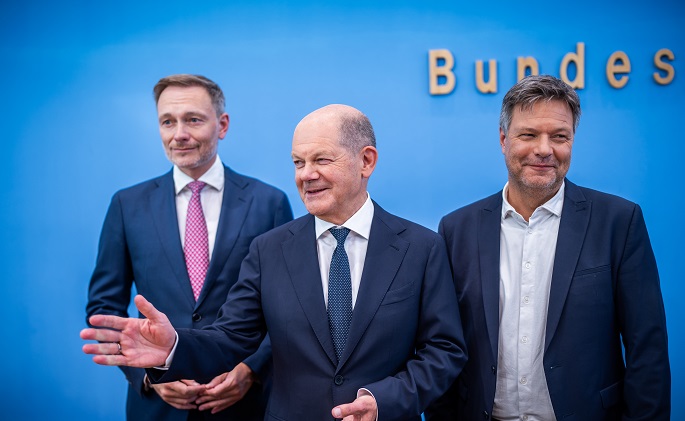Aid organizations criticize
Germany's Cabinet set to approve 2025 budget after long negotiations
Published : 17 Jul 2024, 23:20
The German Cabinet is poised to approve the long-contested 2025 budget on Wednesday after weeks of wrangling over the finances of Europe's largest economy, reported dpa.
The draft, negotiated by the coalition leaders - Chancellor Olaf Scholz of the Social Democratic Party (SPD), Economy Minister Robert Habeck of the Greens and Finance Minister Christian Lindner of the pro-business Free Democratic Party (FDP), calls for a total budget of €480.6 billion- slightly less than this year.
Lindner is planning new loans totalling €43.8 billion, the maximum allowed by Germany's strict rules against ordinary budget deficits, known as the debt brake, which is enshrined in the country's constitution.
Scholz, Habeck and Lindner have been trying for weeks to close a financing gap of around €30 billion. It remains unclear if they have succeeded, as measures totalling about €8 billion are still under constitutional and economic review.
The Cabinet is also expected to approve a supplementary budget for the current year. The coalition plans to take on around €11 billion in additional debt.
The debt brake will nevertheless be adhered to, as it allows the federal government to take on higher loans due to the weaker economy.
Key points for a growth initiative are also to be decided. The measures are intended to increase economic growth by around 0.5 percentage points in the short term.
Companies are to receive incentives for investment through better depreciation conditions, while employees will get financial incentives for overtime and work during retirement.
Additionally, the government aims to make working in Germany more attractive for foreign skilled workers.
Meanwhile, in a joint appeal, 31 non-governmental organizations (NGOs) have strongly criticized the German government's planned cuts in development policy and urged the Cabinet not to support the plans.
"The German government's budget planning is short-sighted and undermines Germany's own goal of working towards a fairer, more prosperous, more peaceful and more secure world," the statement said.
The organizations said that the government is prioritizing short-term savings over long-term damage, neglecting those in need and potentially compromising action on climate change, education and global health.
"It will be many times more expensive to make up for this," the organizations said.
"Today's cuts are tomorrow's crises," they warned.
The German Cabinet is poised to approve the long-contested 2025 budget on Wednesday after weeks of wrangling over the finances.
According to the plans, the Ministry for Economic Cooperation and Development will receive around €10.3 billion next year, which is €937 million less than the current budget for 2024.
The Foreign Office will receive €5.9 billion - around €836 million less than this year.
The comparison does not include an extra budget planned for 2024.
Both ministries will receive the same or increased funding compared to what they had expected based on the medium-term financial plan for 2025.
The aid organizations plan to protest the budget plans in front of the Chancellery in Berlin on Wednesday morning.


